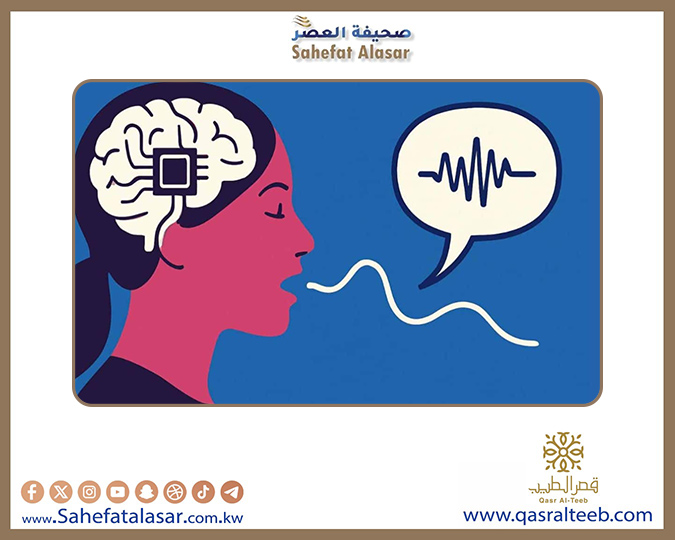


Researchers in California have announced the development of the first brain chip capable of decoding words imagined in their brain and converting them into spoken speech, giving hope to people with complete paralysis who are unable to speak.
Previous research in brain-computer interfaces (BCIs) has enabled speech-impaired people to communicate by picking up signals in the motor cortex of the brain while trying to move their mouth, tongue, lips or vocal cords, but this time the Stanford team was able to bypass the need to try to actually pronounce and rely only on what they called internal talk.
Erin Koons, lead author of the study published in the journal Cell, said it was the first time he had identified patterns of brain activity when thinking about speech, stressing that the technique could enable people with severe motor disabilities to communicate more easily and more naturally.
Four people with acute paralysis as a result of amyotrophic lateral sclerosis (ALS) or stroke in the brainstem took part in the study, including a person whose communication was limited to moving their eyes up and down to answer yes or to the right and left to answer no. After implanting electrode arrays from the BrainGate project into the motor cortex responsible for speech, they were asked to try to pronounce or imagine words silently.
